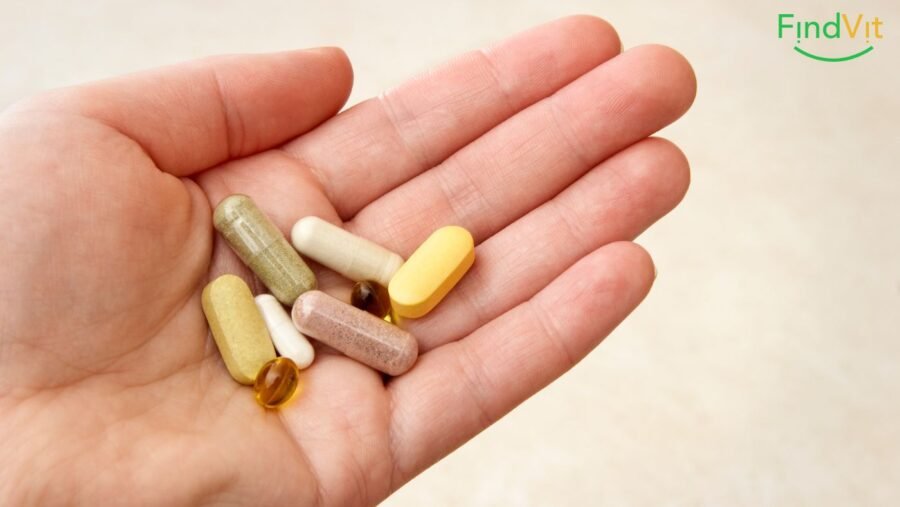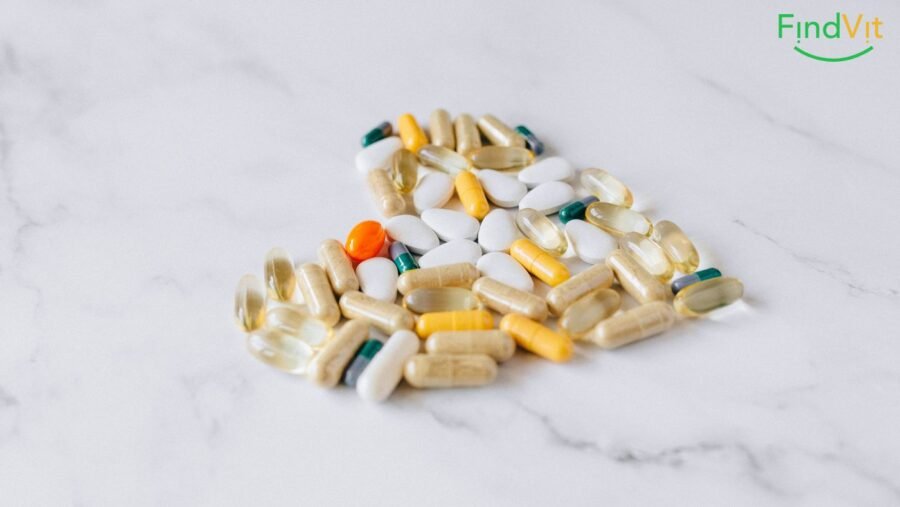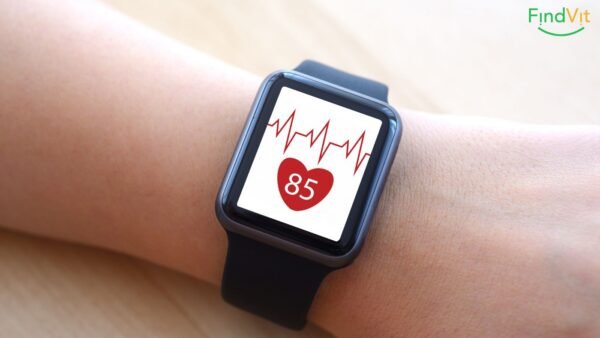
Kaip Sustiprinti Širdį: Kardiologų Patikrinti Metodai Be Vaistų
Kasmet pasaulyje nuo širdies ir kraujagyslių ligų miršta apie 17 milijonų žmonių, ir šios ligos išlieka pagrindinė lietuvių mirties priežastis. Tačiau gera žinia ta, kad…

Did you know that more than 70% people who take prescription medications also take dietary supplements, often without even thinking about the possible consequences?
Dietary supplement interactions with medications are a serious but often overlooked problem that can have a significant impact on our health. Some common combinations of supplements and medications can reduce the effectiveness of medications, increase side effects, or even cause dangerous complications.1
In this article, we will take a detailed look at the compatibility of supplements and medications, discuss the most common interactions and their mechanisms. We will also explain why supplement safety is especially important for specific patient groups, and provide practical advice on how to avoid potential risks.
Drug-supplement interactions are a complex process that can manifest in many ways. We distinguish three main categories of interactions that can have a significant impact on our health.
Pharmacokinetic interactions occur when dietary supplements alter the absorption, distribution, or elimination of drugs in the body. For example, grapefruit juice can significantly increase the blood levels of some drugs by inhibiting specific enzymes involved in drug metabolism.
Pharmacodynamic interactions occur when supplements and medications directly affect each other's effectiveness. Here are some important examples:
Physiological interactions involve the reactions of body systems to combinations of supplements and medications. We see that some combinations can cause unexpected side effects:
Calcium supplements can form insoluble compounds with some antibiotics, reducing their absorption. Vitamin D, taken together with certain blood pressure-lowering medications, may interfere with their action.
It is important to note that the mechanisms of these interactions may vary depending on individual factors such as age, gender and general health. The electronic drug interaction system used by Lithuanian doctors already includes information on more than 20 thousand different drug interactions.

Today we will discuss the most popular dietary supplements and their interactions with medications, which can have a significant impact on the effectiveness of treatment.
We're seeing omega-3 fatty acids become increasingly popular due to their positive effects on heart health. However, special caution is needed when taking them with blood-thinning medications. Studies show that omega-3s may increase the risk of bleeding, especially when taken with warfarin.
We face a particular problem when it comes to the interaction of calcium supplements and antibiotics. Calcium ions form chelates with antibiotics, which can reduce the absorption of the drug by up to 40%. This is why we recommend:
We found that iron supplements require special attention due to their complex interactions with other minerals. Iron absorption is enhanced by vitamin C, copper, and zinc, but reduced by:
We recommend taking iron supplements for 3-6 months after diagnosis of anemia. Hemoglobin levels begin to rise after the first month, but it takes longer to restore iron stores.
High levels of caffeine can enhance the effects of some medications, such as painkillers or psychotropic drugs, and cause unpleasant reactions such as heart palpitations or anxiety.
Some teas, such as green or herbal teas, can affect the effectiveness of medications. For example, green tea can reduce the effects of sedatives due to the caffeine it contains.
It is important to know: Dietary supplements should not be used as a substitute for medication. We find that a common misconception is that dietary supplements can replace prescription medications. They are intended only to supplement a regular diet and should not be used as an alternative to treatment.

We encounter patients every day who are at particular risk from interactions between dietary supplements and medications. Our experience shows that some patient groups require special attention and an individual approach.
We find that patients with cardiovascular disease take an average of 3.28 medications at the same time. Our research shows that a balanced diet and properly selected nutritional supplements can improve the health status of these patients.
Here are the main recommendations for this group of patients:
Our practice shows that the treatment of patients with diabetes is complex, including not only medications, but also nutritional therapy. Proper nutritional therapy can reduce HbA1c by 0.5–2.0% in patients with type 2 diabetes.
We found that:
We see that the use of nutritional supplements poses particular challenges for cancer patients. Studies show that 60-80% cancer patients use vitamin and mineral supplements.
It is important to know: No vitamins or supplements can be a substitute for regular anti-cancer treatment. We recommend:
Particularly important: We always recommend that patients inform their doctor about all dietary supplements they are taking, as most patients do not communicate about them with their doctors, which can lead to dangerous drug-supplement interactions.
The role of healthcare professionals is becoming increasingly important in ensuring the safe use of dietary supplements and medicines. We see that proper professional supervision can help avoid many risks.
Our research shows that 58.31% of patients understand the importance of consulting a doctor before taking dietary supplements. When prescribing medications, a doctor must:
We are seeing the pharmacist's role become increasingly important. As many as 68.61% of TP3T patients consult a pharmacist about the use of dietary supplements. Pharmacists most often provide information about:
It is important to know: 80.51% of patients trust the pharmacist's recommendations, and 79.41% of patients rate the consultations as clear and specific.
We have implemented a new E-health system that includes information on more than 28 thousand different drug interactions. The system automatically checks drug interactions during each e-prescription and provides:
It is interesting to notethat in 2023, more than 1 million clinically significant interactions were prevented thanks to this system.
We find that the most effective results are achieved when the doctor and pharmacist work closely together. For example, when a patient comes to the pharmacy with two prescriptions for non-compensated drugs, it is often enough for the pharmacist to consult with the doctor to suggest the most appropriate combination.
Particularly important: We recommend that patients always inform their doctor about all dietary supplements they are taking, as research shows that most patients do not. Only by working with healthcare professionals can we ensure the safe and effective use of supplements.

Legal and regulatory aspects of the use of dietary supplements are becoming increasingly important, especially when it comes to their interactions with medications. We note that legal regulation in this area is constantly evolving to ensure consumer safety.
We see that Lithuania and the EU have strict requirements for labeling dietary supplements. Labels must indicate:
It is important to know: We strictly prohibit any indication or allegation of therapeutic or disease-preventive properties in the labeling, presentation, or advertising of dietary supplements.
We have implemented a modern electronic drug interaction screening system that:
It is interesting to note, that the system helped prevent more than 1 million clinically significant interactions in 2023. We are constantly improving the system to include not only drug interactions, but also dietary supplement interactions.
We note that consumer rights and responsibilities in the use of dietary supplements are becoming increasingly relevant. Lithuania has a prior notification system for dietary supplements.
To ensure consumer protection:
It is important to mention, that the EU has some of the strictest food safety regulations in the world. We see that in early 2024 alone, the State Food and Veterinary Service received 17 reports of unsafe food supplements, compared to 7 reports in 2023.
Special attention is for novel foods. We require novel foods to be included in the Union list of novel foods before they are placed on the market.
We also see that some manufacturers are trying to circumvent the rules, for example by registering products as cosmetics when they are intended for use as food supplements. This practice is illegal and can pose serious risks to consumers' health.
Practical advice: We recommend that consumers always check whether the dietary supplement they are purchasing is notified in Lithuania, which can be done in the publicly available List of Notified Dietary Supplements.

Dietary supplements can enhance or inhibit the effects of medications, as well as cause side effects. Proper combination helps ensure the effectiveness and safety of treatment.
The most common interactions occur with the following supplements:
Fish oil: may increase the risk of bleeding when taking blood-thinning medications.
St. John's wort: weakens the effect of some medications, such as antidepressants or contraceptives.
Magnesium, calcium, iron: reduces the absorption of some antibiotics.
Consult your doctor or pharmacist before taking supplements.
Follow the timing recommendations – some supplements should be taken separately from medications.
Monitor your body's reactions and contact a specialist immediately if you notice any unwanted symptoms.
Not all supplements have significant effects, but each person's body is unique. Even the most unlikely combinations can have an effect, so it's always important to be cautious.
You can find reliable information at:
When contacting your family doctor.
Visiting a pharmacy and consulting with a pharmacist.
Using dedicated supplement-drug interaction databases online, such as Drugs.com or other professional sources.
The interaction between dietary supplements and drugs requires our special attention and understanding. We see that this phenomenon involves complex pharmacokinetic, pharmacodynamic and physiological mechanisms that can have a significant impact on the effectiveness of treatment.
The special patient groups we discussed – heart disease, diabetes and cancer patients – require an individualized approach to supplement use. The role of healthcare professionals becomes essential in ensuring the safe and effective combination of supplements and medications.
Strict legal regulations and modern electronic systems help us avoid dangerous interactions, but the ultimate responsibility lies with the consumers themselves. We recommend that you always inform your doctor about the dietary supplements you are taking and carefully follow the recommendations of specialists.
The safe use of dietary supplements in combination with medications requires constant vigilance and knowledge updating. Only by cooperating with healthcare professionals and complying with legal requirements can we ensure optimal treatment results and avoid unwanted consequences.

Kasmet pasaulyje nuo širdies ir kraujagyslių ligų miršta apie 17 milijonų žmonių, ir šios ligos išlieka pagrindinė lietuvių mirties priežastis. Tačiau gera žinia ta, kad…

Artificial intelligence in medicine has made impressive progress – it has already successfully passed medical licensing exams and can handle internal medicine cases. Even more impressive is that special…

The human heart beats an average of more than 2.5 billion times during a lifetime. This amazing organ works tirelessly to maintain a vital pulse rhythm, the rate of which (pulse rate)…

KIKI Health Zeolitas - Ceolitas, milteliai, 60 g

Trace Minerals Mega Magnesium 400 mg. Liquid with minerals, 118 ml.

KIKI Health Zeolitas - Ceolitas su aktyvuota anglimi, milteliai 60 g.

KIKI Health Zeolitas - Ceolitas, milteliai, 120 g.

SUPER OMEGA-3 - norvegiški žuvų taukai su Omega-3, didelė koncentracija, 100+30 kapsulių
| Cookie | Duration | Description |
|---|---|---|
| cookielawinfo-checkbox-advertisement | 1 year | Šį slapuką nustato GDPR Cookie Consent papildinys. Slapukas naudojamas išsaugoti vartotojo sutikimą dėl slapukų kategorijoje „Analitiniai“. |
| cookielawinfo-checkbox-analytics | 11 mėnesių | Šį slapuką nustato GDPR Cookie Consent papildinys. Slapukas naudojamas išsaugoti vartotojo sutikimą dėl slapukų kategorijoje „Analitiniai“. |
| cookielawinfo-checkbox-functional | 11 mėnesių | Slapukas nustatomas pagal GDPR slapukų sutikimą, kad būtų įrašytas vartotojo sutikimas dėl slapukų kategorijoje „Funkciniai“. |
| cookielawinfo-checkbox-necessary | 11 mėnesių | Šį slapuką nustato GDPR Cookie Consent papildinys. Slapukai naudojami saugoti vartotojo sutikimą dėl slapukų kategorijoje „Būtini“. |
| cookielawinfo-checkbox-others | 11 mėnesių | Šį slapuką nustato GDPR Cookie Consent papildinys. Slapukai naudojami saugoti vartotojo sutikimą dėl slapukų kategorijoje „Kiti“. |
| cookielawinfo-checkbox-performance | 11 mėnesių | Šį slapuką nustato GDPR Cookie Consent papildinys. Slapukai naudojami saugoti vartotojo sutikimą dėl slapukų kategorijoje „Vykdymas“. |
| elementor | never | Šį slapuką naudoja svetainės „WordPress“ tema. Tai leidžia svetainės savininkui realiuoju laiku įdiegti arba keisti svetainės turinį. |
| viewed_cookie_policy | 11 mėnesių | Slapuką nustato GDPR Cookie Consent įskiepis ir jis naudojamas norint išsaugoti, ar vartotojas sutiko, kad būtų naudojami slapukai, ar ne. Jame nesaugomi jokie asmens duomenys. |
| Cookie | Duration | Description |
|---|---|---|
| _ga | 2 metai | _ga slapukas, įdiegtas Google Analytics, apskaičiuoja lankytojų, seansų ir kampanijos duomenis, taip pat seka svetainės naudojimą svetainės analizės ataskaitoje. Slapukas išsaugo informaciją anonimiškai ir priskiria atsitiktinai sugeneruotą skaičių unikaliems lankytojams atpažinti. |
| _ga_JWS80V051Z | 2 metai | Šį slapuką įdiegė Google Analytics. |
| omnisendSessionID | 30 minučių | Šį slapuką nustato teikėjas Omnisend. Šis slapukas naudojamas unikaliam seanso ID nustatyti. Slapukas statistiniais tikslais renka informaciją apie lankytojų elgesį svetainėje. |
| soundestID | sesijos metu | Šį slapuką nustato teikėjas Omnisend. Šis slapukas naudojamas norint nustatyti, ar lankytojas svetainėje yra naujas, ar lankytojas lankėsi anksčiau. |
| Cookie | Duration | Description |
|---|---|---|
| omnisendAnonymousID | 1 year | Šį slapuką nustato teikėjas Omnisend. Šis slapukas naudojamas išsaugoti vartotojo veiksmą svetainėje su unikaliu ID. Slapukas užšifruoja lankytojo duomenis, kad būtų apsaugoti naudotojo duomenys. |
| soundest-views | sesijos metu | Aprašymas negalimas. |
| woocommerce_recently_viewed | sesijos metu | Aprašymas nepasiekiamas. |
